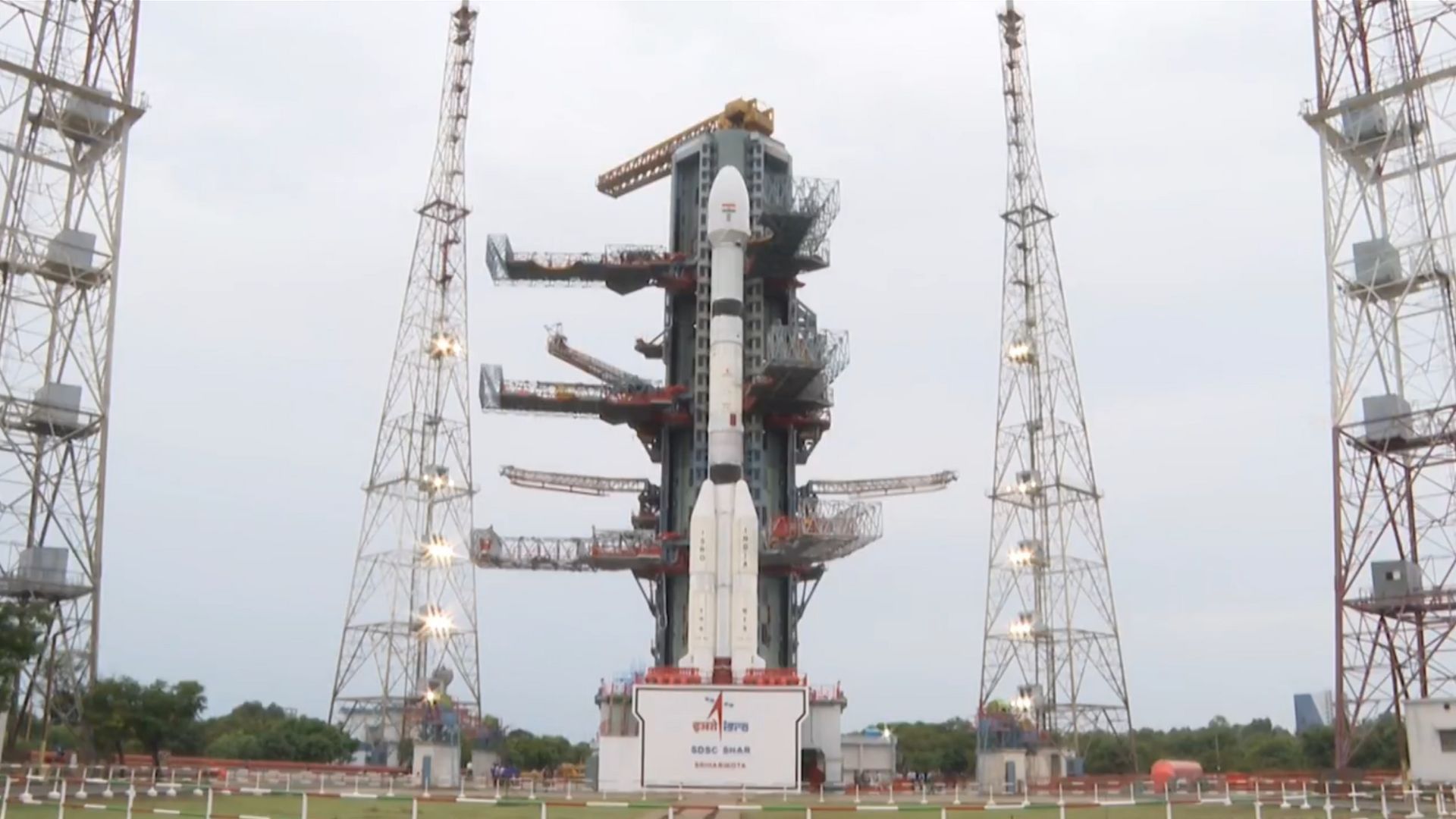New Delhi: ISRO has rolled out the GSLV-F16 rocket to the launchpad from the vehicle assembly building. The single payload on board is the NASA ISRO Synthetic Aperture Radar (NISAR) satellite, which is the result of the first collaboration of its kind between NASA’s Jet Propulsion Laboratory (JPL) and ISRO’s Space Applications Centre (SAC). The satellite has been in development since it was proposed by a committee in 2007, with JPL developing the innovative sweep SAR technology. JPL initially approached ISRO with the proposition for using India’s satellite and rocket to deploy their payload, but ISRO scientists negotiated a more equitable partnership, where SAC would be developing a payload as well.
The spacecraft uses a deployable radar reflector antenna that measures 12 metres across, that is on top of a nine metre long boom. It will take several days after the launch of the mission to deploy this radar reflector antenna. The antenna will be used by two radar payloads on board, one made in India, and one made in USA. NISAR will be able to peer through clouds, in day and night, as well as vegetation, measuring precise changes in the land and ice. The unprecedented precision offered by the spacecraft is likely to result in novel applications that no one had imagined while designing the instruments.
A notorious launch vehicle
The Geosynchronous Satellite Launch Vehicle (GSLV) has a spotty launch record, with the GSLV-F06 mission exploding in midair shortly after liftoff in 2010. The GSLV is the tallest rocket in ISRO’s operational fleet, with the smaller PSLV flying more often, and the more powerful LVM3 used for flagship missions or deploying constellations of satellites. The GLSV has proven to be a challenging rocket to tame, but has somewhat redeemed its reputation in recent times. The entire NISAR mission is designed with multiple redundancies, with the boom, the radar reflector antenna, and the launch vehicle itself, being single points of failures. ISRO has scheduled the exciting GSLV-F16 launch for 30 July.
